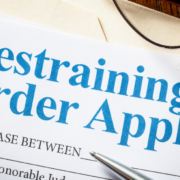When it comes to dividing things during a divorce, you may think about assets like investments or real estate, but you may also need to split your debts. Depending on what they are and how much, avoiding getting stuck with your spouse’s student loans may be a bigger financial win than obtaining an investment account or car.
Americans have about $1.5 trillion in student debt, according to NBC News, so it should not be a surprise that one or both of you have these loans. Payments may be in the hundreds or thousands of dollars each month. Unless you qualify for a program to make your payments or forgive your loans, not even bankruptcy can wash away your liability.
Usually, the spouse taking the asset takes on the loan paying for it. If you get the car, and it is not paid off yet, you are responsible for the car loan. But education is not a tangible asset. It is a service. You paid for someone to educate you. Part of the plan was probably that your education was an investment that would lead to a higher income than if you went without.
Depending on your finances, debts, and professional and personal lives, these divorce issues could be very complicated. The more money at issue, the greater your need for an attorney’s help because there is more at stake and more to lose.
Is the Student Debt Subject to Equitable Distribution?
The first step is determining if the student loan is a marital or a non-marital debt. If it was incurred during the marriage, it is a marital debt. If the debt arose before the marriage or after your separation, it is a non-marital debt and not subject to equitable distribution (to split fairly amongst the parties depending on the facts of the situation).
Marital debts are generally subject to equitable distribution. That could mean both parties are equally liable, only one is responsible for the debt, or what they must pay is somewhere in between.
Issues a Judge May Consider
Student loans are personal to the spouse receiving the education. The student loan’s benefit is usually obtained by the spouse getting the education. But a student loan could cover living expenses for both spouses. If the other spouse benefitted from the education because of a higher household income, they might be partially responsible for paying it back.
If the debt is greater than any income increase or the spouses were economically independent of each other, requiring the other spouse to help pay the debt would be unfair. If a spouse is attending college full-time or enough to impact how much the two earn, often the other spouse will have more, if not all, of the burden of earning an income. That may mean shelving their plans for additional education or starting a business, impacting them financially. It would not be equitable for that person to bear these burdens, plus make student loan payments.
What Is on the Paperwork?
Whose name is on the loan? If you and your spouse took out the loan together so one of you could attend grad school, both of you are on the hook. If your name is not on the paperwork and you did not co-sign the debt, it is easier to say it is not yours.
If you co-signed a loan, things get complicated. When you co-sign, you are only responsible if your ex defaults or stops paying for the loan. You would like to think that would only happen if payment is, as a practical matter, impossible. But it can also occur if the debtor stops paying and spends their money elsewhere. The creditor may decide it is easier to get payments from you than pursue your ex.
You also may have consolidated student loan debt by using a home equity line of credit (HELOC). If your name is on the debt, it is half yours. If the amount is substantial and primarily for your spouse’s education, you may be responsible for paying it.
The Big Picture
Like all disputes arising in a divorce, the issue will be litigated if the parties cannot agree, making a resolution far more costly and time-consuming. Couples need to inventory their assets and debts, determine which are personal and which are marital, and come up with a way marital assets and debts can be fairly spread among them. Both sides will probably get a mix of debts and assets. Student loans are just one piece of the puzzle. At Karen Ann Ulmer, P.C., we know how to protect our clients from unfairly taking on debts. Contact us today to see how we can help you.









